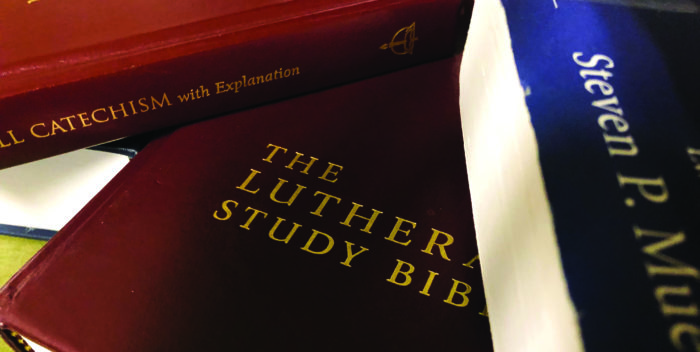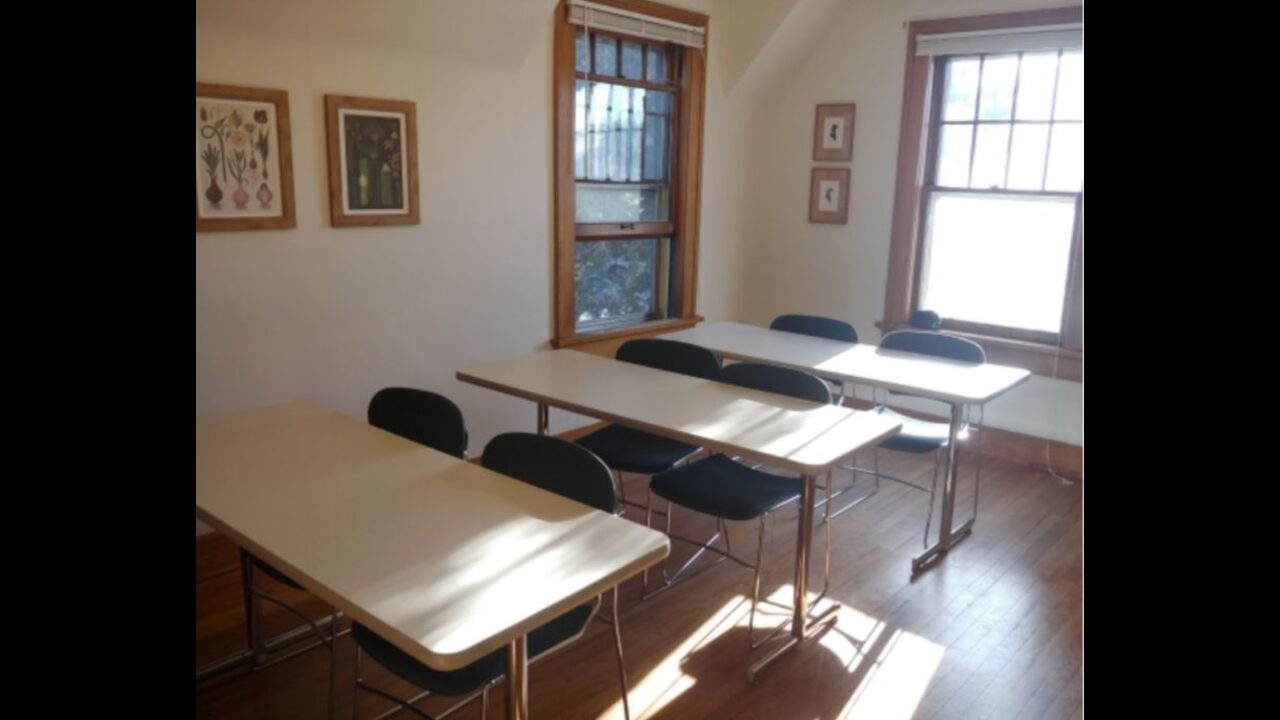Theology Department Adjusts For Spring Semester
Important study materials. Photo by Janis Wagner.
By Janis Wagner
The theology department is kicking off the new year with changes to the structure of the department.
Many of the professors attribute this to various changes to the theology program at Concordia.
The Luke Scholars Program is a newly implemented honors program designed to help students develop higher-level leadership skills for work both in the church and the world post-graduation. Students partake in specialized subject-based lectures and extra hours of work toward their degrees.
“The mission of the Luke Scholars Program is to cultivate students of high potential and great will into capable servants and intellectual stewards with a God-given duty to serve and lead,” theology professor Dr. David Coe said. “We need to teach our students to have confidence in the providence of God, first. When we do that, they’ll have the confidence to serve and lead in the church and world, second.”
Dr. Dirk Reek, who had retired a few years previously after serving Concordia since 2004, returned at the beginning of the spring semester. He will be teaching a section of Faith and Life so that Interim President Russell Sommerfeld can fully take on the necessary requirements of his new position.
Additionally, the department is getting ready to fill a hole in its staff. Professor Terrence Groth publicly announced his retirement after this academic year. This means that his previously taught classes of New Testament, Faith and Life and the two Christian Doctrine classes will be looking for a new professor for the 2020-21 academic year.
The theology department is still important for those not in the program. It prepares students for ministry outside of the campus environment, equipping future leaders in the church, no matter what role they may fill.
“It definitely helps me to learn more about Scripture interpretation of the Bible, especially in this day and age,” sophomore Jonah Lange said. “The things I’ve learned also has helped to shape my knowledge on different people in the outside world and how to help them when I graduate.”
The most recognizable programs that require a theology background include the Director of Christian Education (DCE) program, the Pre-Seminary and Pre-Deaconess programs, the Church Music program and the Lutheran Teacher’s Diploma or Christian Teacher’s Diploma certifications.
Senior DCE student Matthew Murphy explained the benefits of how CUNE prepares students for future careers in church work.
“The department at CUNE is the kind of group that encapsulates everything that education should be,” Murphy said. “In my own major as a DCE, a good majority of my classes have been in this department. Theology and doctrine help deepen what we know about our faith and how we should worship and serve God.”
All students are required to take at least nine credit hours of classes within the theology department for their general education requirements. Concordia’s liberal arts program gives students religious foundational background classes in order for them to gain higher-level thinking while interacting with other people after they get their degrees.
The theology professors encourage students to embrace the diversity in religious backgrounds of all people using the techniques learned within Concordia’s curriculum even after college ends.













